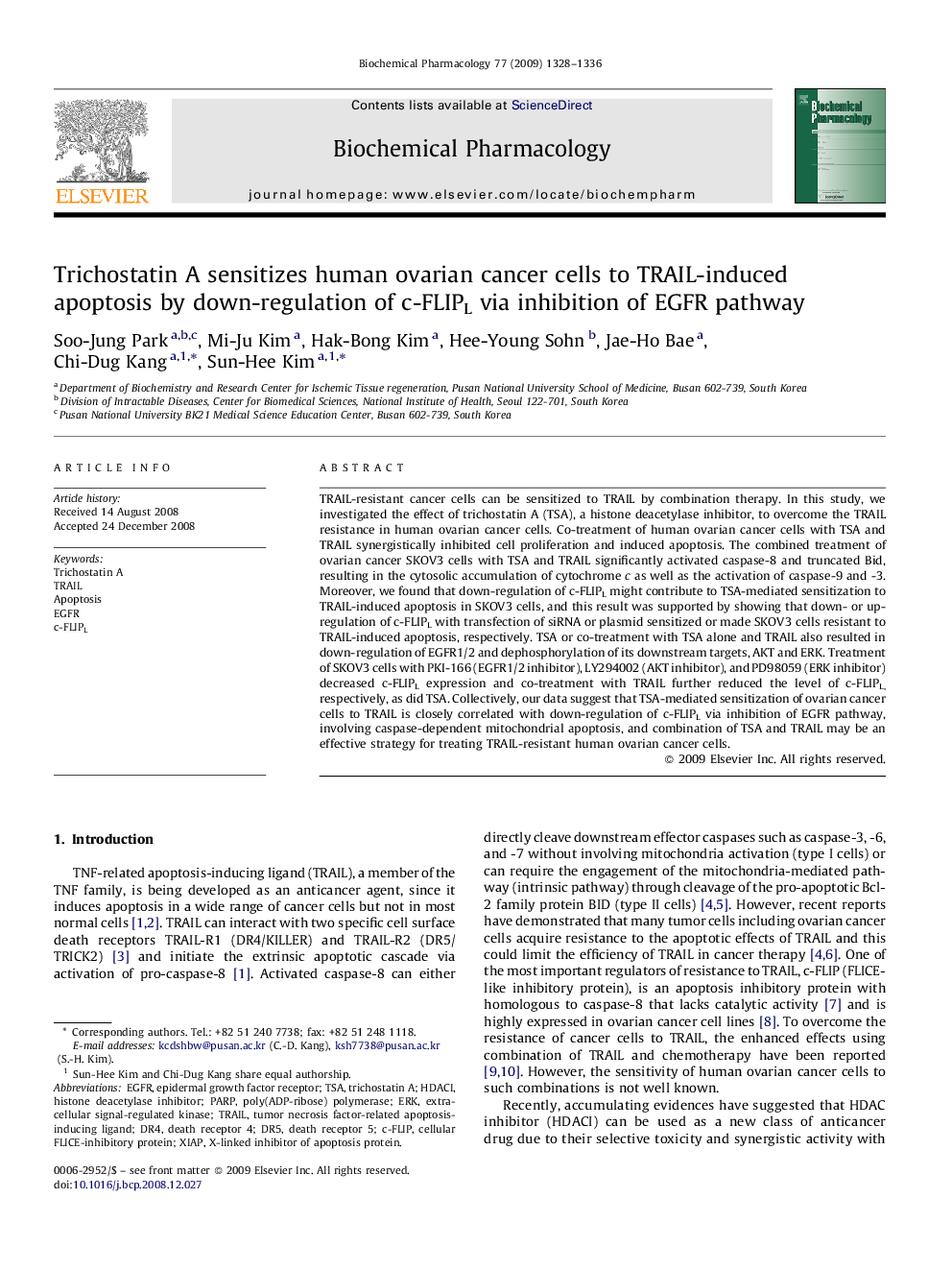| Article ID | Journal | Published Year | Pages | File Type |
|---|---|---|---|---|
| 2514125 | Biochemical Pharmacology | 2009 | 9 Pages |
TRAIL-resistant cancer cells can be sensitized to TRAIL by combination therapy. In this study, we investigated the effect of trichostatin A (TSA), a histone deacetylase inhibitor, to overcome the TRAIL resistance in human ovarian cancer cells. Co-treatment of human ovarian cancer cells with TSA and TRAIL synergistically inhibited cell proliferation and induced apoptosis. The combined treatment of ovarian cancer SKOV3 cells with TSA and TRAIL significantly activated caspase-8 and truncated Bid, resulting in the cytosolic accumulation of cytochrome c as well as the activation of caspase-9 and -3. Moreover, we found that down-regulation of c-FLIPL might contribute to TSA-mediated sensitization to TRAIL-induced apoptosis in SKOV3 cells, and this result was supported by showing that down- or up-regulation of c-FLIPL with transfection of siRNA or plasmid sensitized or made SKOV3 cells resistant to TRAIL-induced apoptosis, respectively. TSA or co-treatment with TSA alone and TRAIL also resulted in down-regulation of EGFR1/2 and dephosphorylation of its downstream targets, AKT and ERK. Treatment of SKOV3 cells with PKI-166 (EGFR1/2 inhibitor), LY294002 (AKT inhibitor), and PD98059 (ERK inhibitor) decreased c-FLIPL expression and co-treatment with TRAIL further reduced the level of c-FLIPL, respectively, as did TSA. Collectively, our data suggest that TSA-mediated sensitization of ovarian cancer cells to TRAIL is closely correlated with down-regulation of c-FLIPL via inhibition of EGFR pathway, involving caspase-dependent mitochondrial apoptosis, and combination of TSA and TRAIL may be an effective strategy for treating TRAIL-resistant human ovarian cancer cells.
Graphical abstractFigure optionsDownload full-size imageDownload as PowerPoint slide
